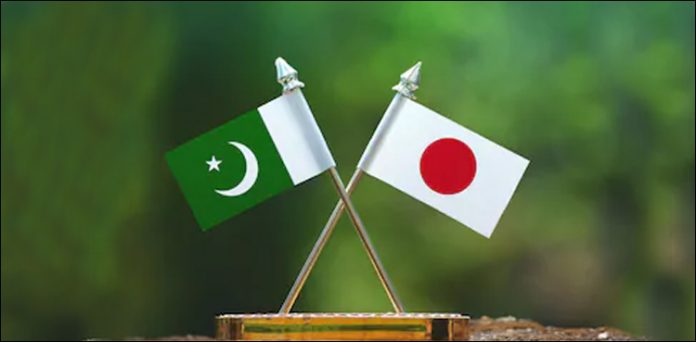KARACHI: Pakistan Japan Business Forum (PJBF) took a business delegation, comprising several business groups and small & medium enterprises (SMEs), to the 8th Joint Business Dialogue in Tokyo, which was followed by government-to-business (G2B) and government-to-government (G2G) dialogues.
The Pakistani delegation was headed by PJBF Chairman Sohail P Ahmed while the Japanese business delegation was led by Japan Pakistan Business Cooperation Committee (JPBCC) and Marubeni Corporation Chairman Teruo Asada, according to a statement issued on Monday.
Advisor on Commerce, Textile, Industry & Production and Investment Abdul Razak Dawood represented Pakistan, whereas Parliamentary Vice Minister of Economy, Trade and Industry (METI) Akimasa Ishikawa represented the Government of Japan.
The dialogue was followed by a seminar by the Japan External Trade Organization (JETRO) and later by one-on-one meetings with various Japanese conglomerates and infrastructure support companies, including SME Support and Japan Productivity Centre. PJBF delegates participated in all the meetings.
As many as 58 Japanese and 17 Pakistani companies participated in the joint dialogue, while the seminar was attended by 143 Japanese personnel, who saw Pakistan as a potential destiny for trade and investment and also took a keen interest in the Pakistani items on display.
Speakers elaborated on Pakistan’s strategic location coupled with a population of over 200 million with 60pc people under the age of 30 years and a growing middle class with an increasing purchasing power.
The Japanese investors were informed about the low production costs and availability of abundant natural resources supported by a liberal investment regime in Pakistan. The discussions covered suggestions for improvement in Pakistan’s automotive industry, infrastructure and taxation, development of Pakistan’s fisheries sector to enhance export to Japan, assistance in the improvement of productivity of industries, agriculture and irrigation system on the pattern provided to the likes of Vietnam, Bangladesh, India; possibility of cooperation in development and export of fruit pulp and citrus.
It was agreed to develop an action plan and have a follow-up body, constituted with both government and private sector as its members, in line with government’s policy of public-private partnership.



































